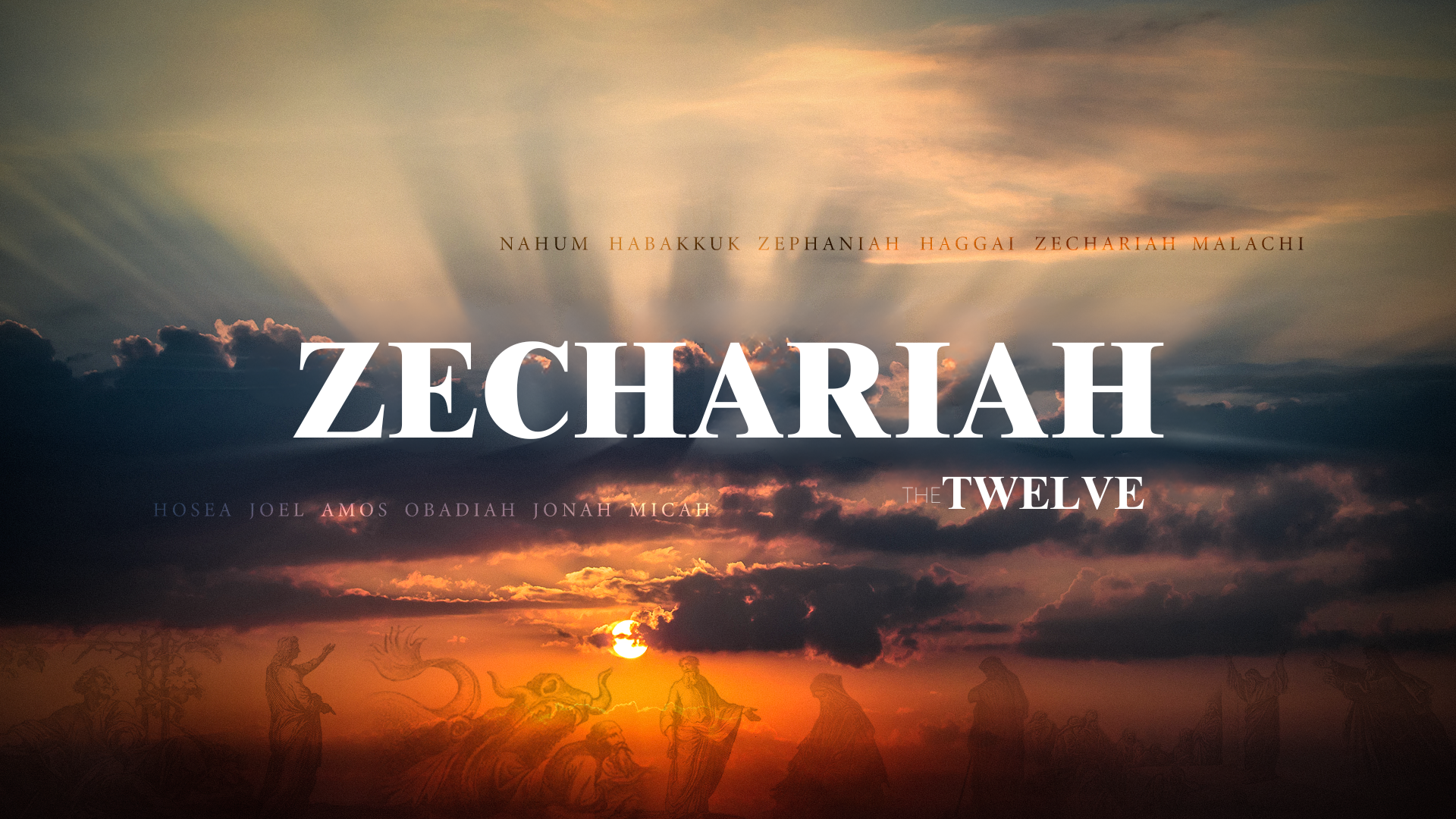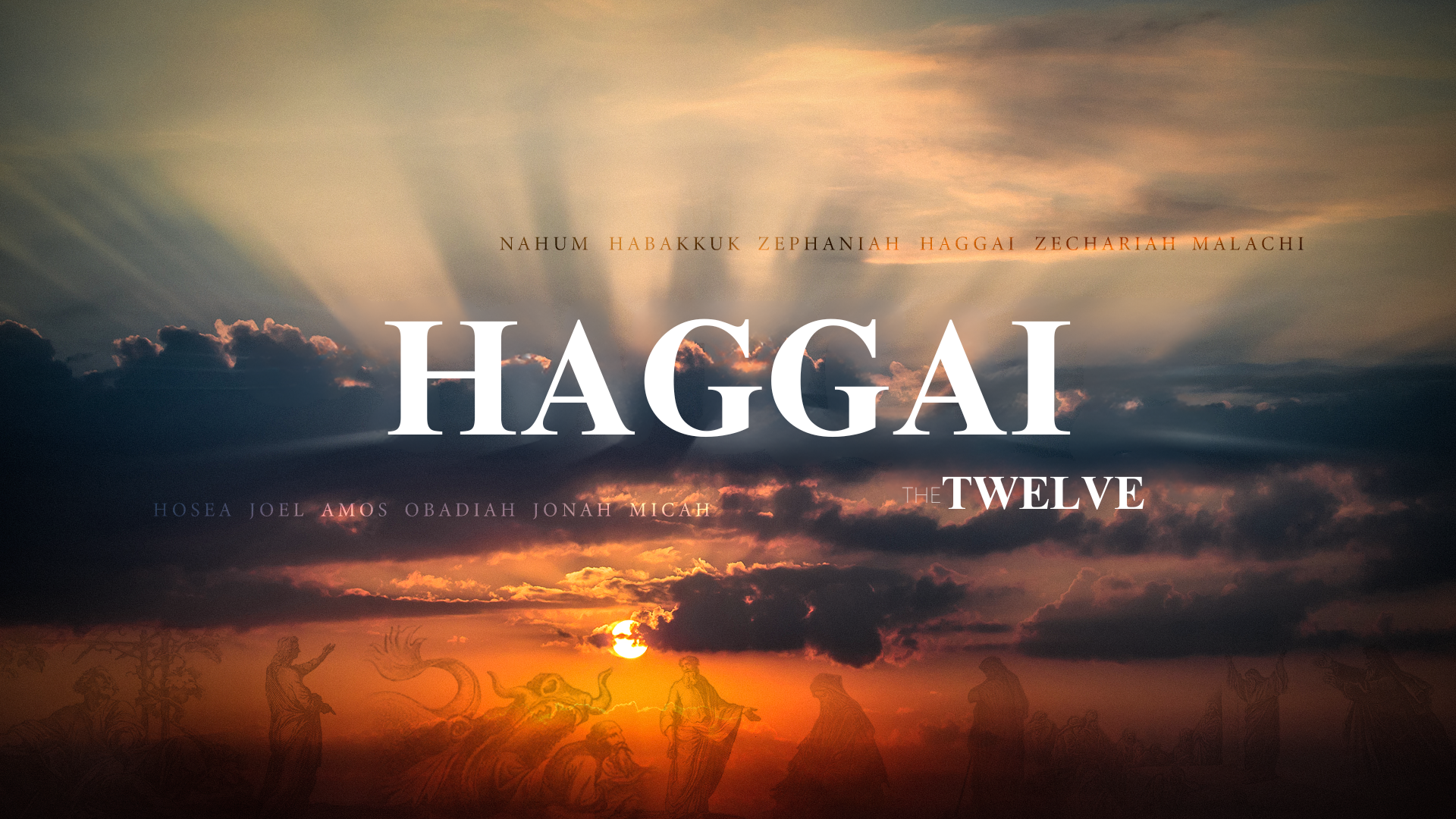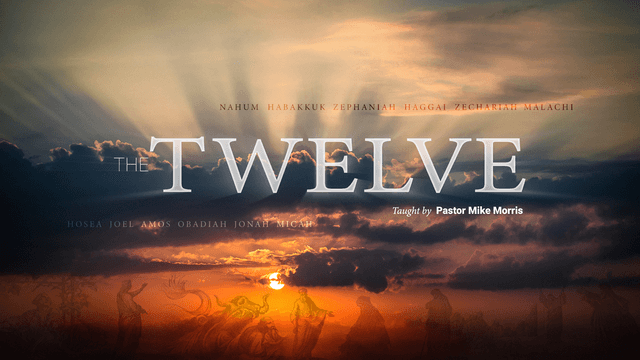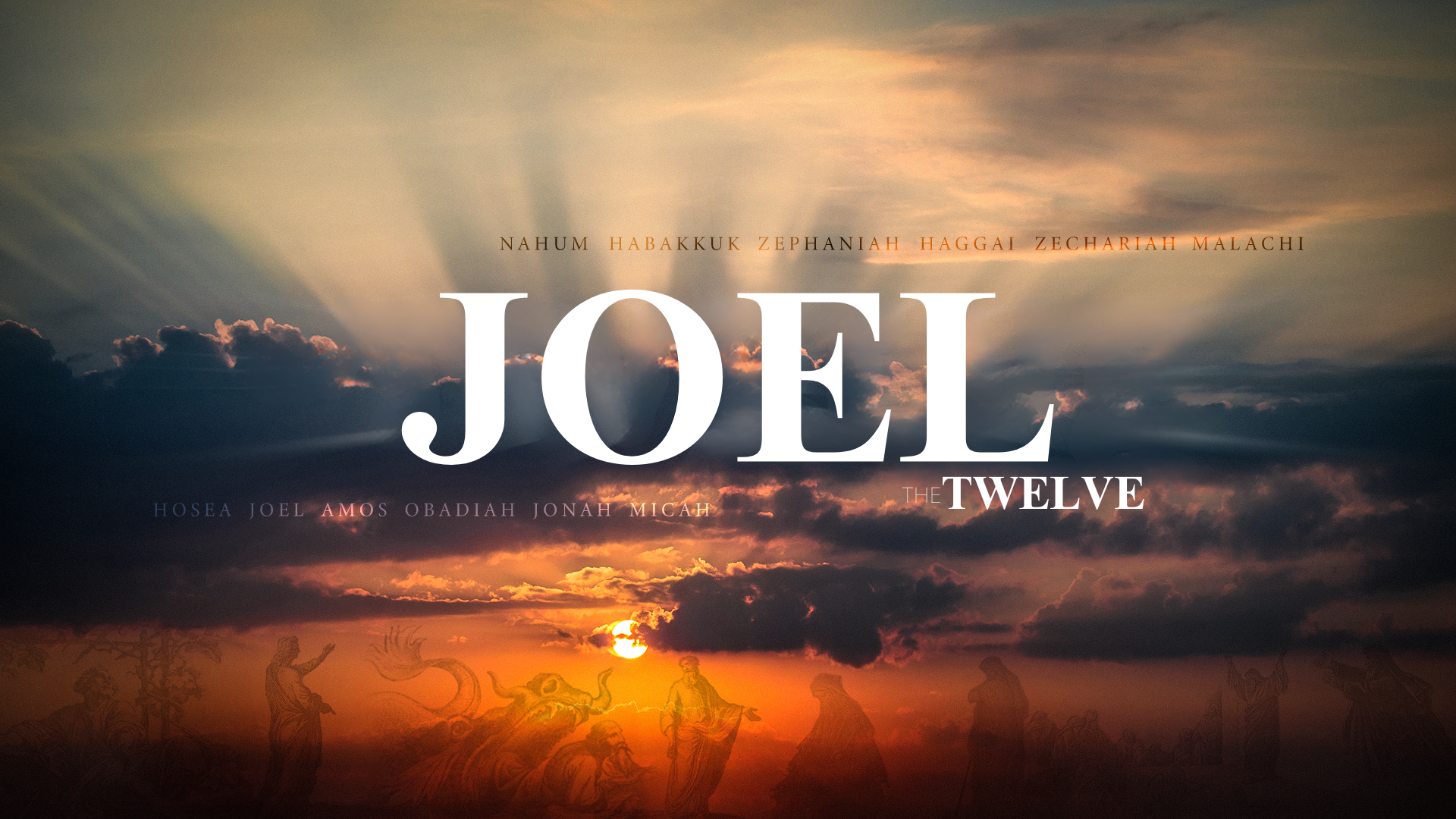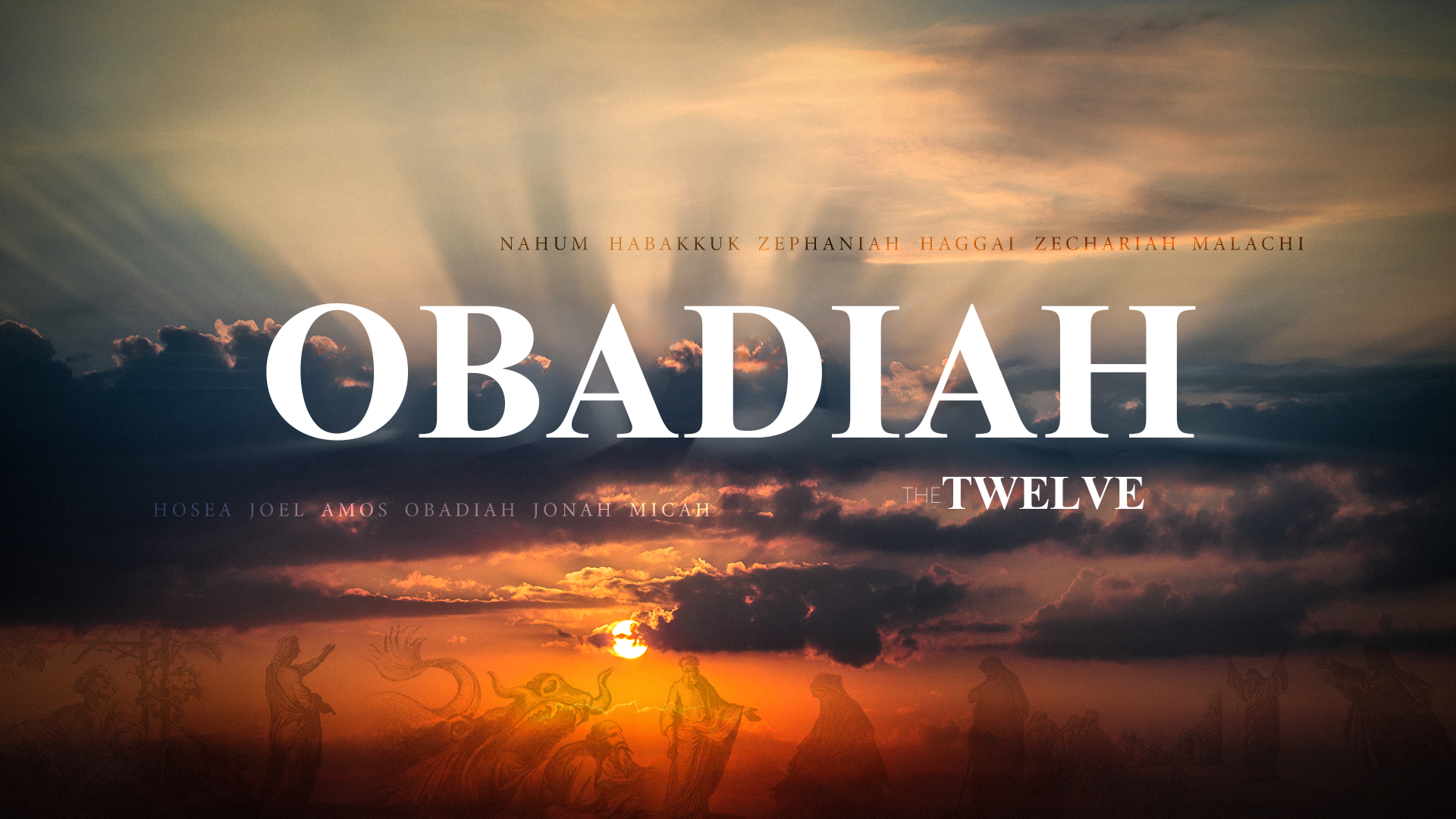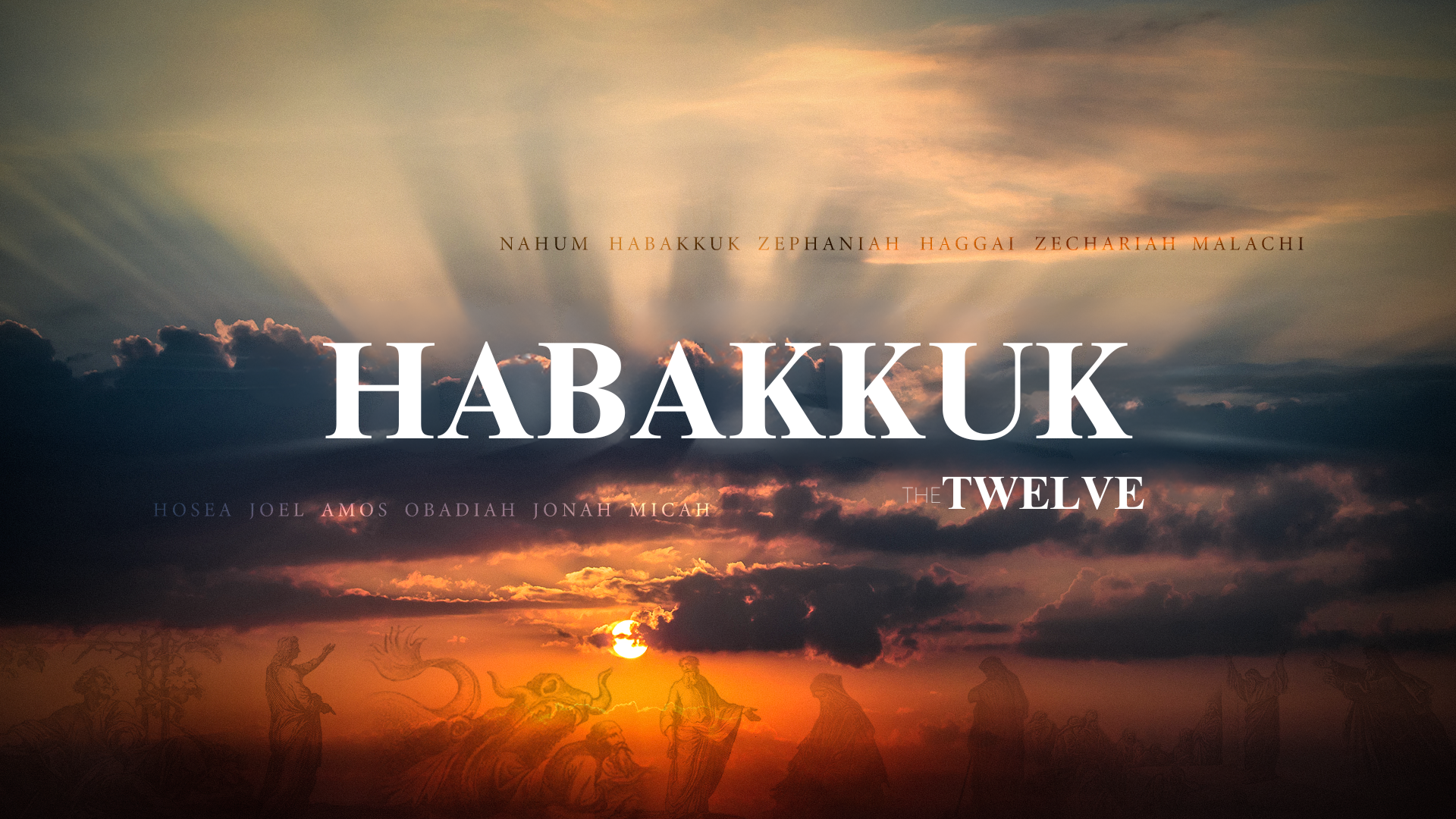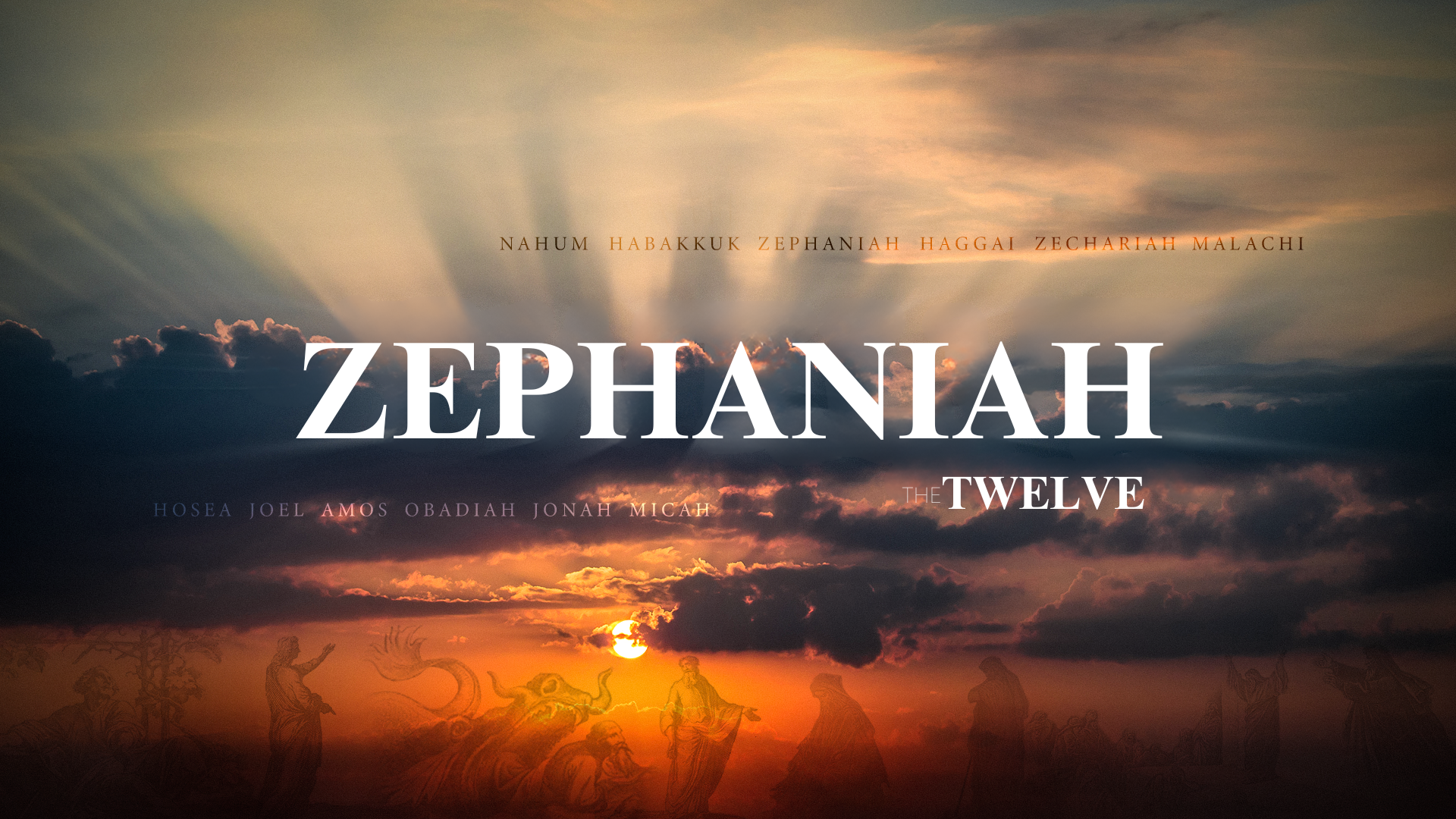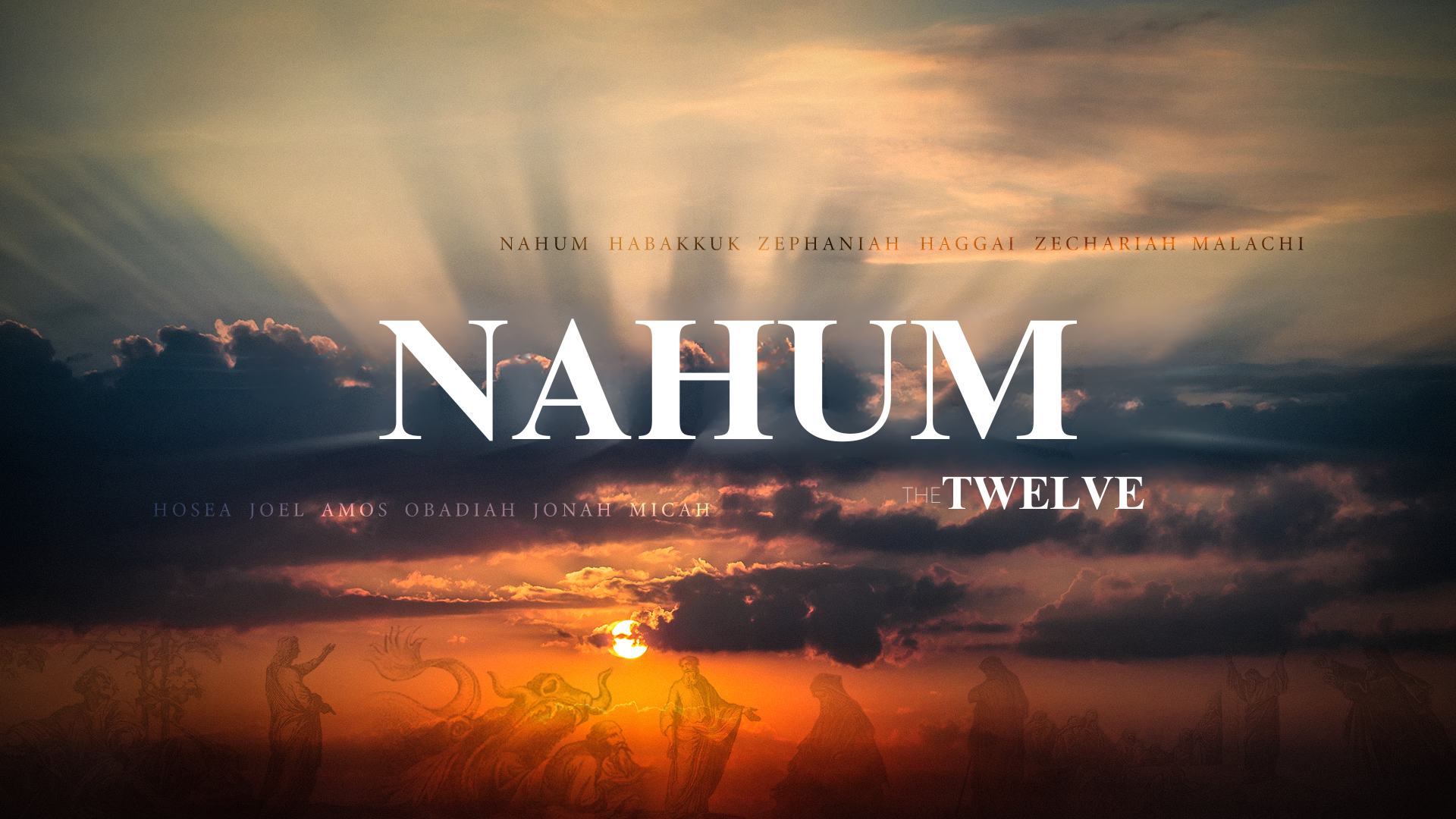MANUSCRIPT
Welcome back as we continue our study of The Twelve, the collection of prophetic books that closes the Old Testament…written by a wide variety of authors with important messages for the divided kingdoms of Israel and Judah in the period 930 to 430 BC.
I’d like to take a moment and set some expectations at the front end of this series...as we approach these books verse by verse and faithfully apply the Scripture we learn, we will follow a pace as we’re led by the Lord...there will be times for Wesley to be in the pulpit, much as we did through the Philippians study...there may also be times with a guest preacher or a Senior Pastor candidate...we’ll remain flexible as we go and learn every lesson God has for us in these wonderful books.
Let’s recall the context -- northern kingdom of Israel; 780 BC, just 40 years before the beginning of the deportation of Israel into exile in the farthest reaches of the Assyrian Empire, an exile from which national Israel would not return…
SLIDE 1 -- ISRAEL IN THE PERIOD OF THE TWELVE
Last week we covered the first two chapters of the book of Jonah, beginning with God’s call for him to go to Nineveh, the capital of the wicked Assyrian empire, Israel’s bitter enemies… then we saw Jonah’s decision to run for it, heading west to Tarshish, in modern-day Spain, instead of northeast to Nineveh, which was on the banks of the Tigris River across from the location of the modern-day city of Mosul in Iraq.
On the journey, the Lord causes a storm to arise at sea, and in order to save the ship and crew, the sailors reluctantly throw Jonah overboard; he’s promptly swallowed by a great fish, again sent by the Lord, and chapter two recounts Jonah’s prayer from inside the fish…and to briefly set the stage for the prophet’s work in Nineveh, let’s summarize the five points Jonah makes in his prayer.
1. I called You, O God, and You answered me (v 1)
2. You cast me away, yet You brought me up (v 2-6)
3. I remembered You and prayed (v 7)
4. Idolaters will not know You (v 8)
5. But I pay my vows to You (v 9)
This sounds good…but is it really? We might ask if something is missing from this prayer…I think the answer would be yes…there’s no mention of actual confession or repentance…in fact, in verses 8 and 9 we get a hint of where Jonah’s thoughts really are…Jonah 3.8-9
Those who pay regard to vain idols
forsake their hope of steadfast love.
9 But I with the voice of thanksgiving
will sacrifice to you;
what I have vowed I will pay.
Salvation belongs to the Lord!”
Verse 8 is an indictment of the very people he’s about to preach to, the Assyrians, who were known to worship on the order of 2,400 gods across the Empire, notable among them were Marduk, Ishtar, Tammuz, and Dagon…according to Jonah, those guilty of idolatry would “forsake their hope of steadfast love” or covenant love…he seems to hold out no hope for them to turn to the covenant God of Israel
Verse 9, however, exalts the Lord as the source of salvation, true enough, but it also exalts Jonah himself, as he declares his faithfulness in keeping the ritual law, promising to keep his vows and offer the proper sacrifices…note the emphasis as he uses the personal pronoun “I” three times in a single verse
So instead of confessing and repenting of his own sin, Jonah confesses the sins of the Assyrians
Despite this lukewarm reckoning from the belly of the great fish, God is gracious and patient with His stubborn prophet, and delivers him a second time -- once saving him from certain drowning by appointing a fish to swallow him, and now saving him from the fish, as the fish vomits Jonah out on to the beach
And as chapter three begins, the word of the Lord comes to Jonah a second time, sounding a lot like the first call he heard back in Israel: Jonah 3.1-2….. Then the word of the Lord came to Jonah the second time, saying, 2 “Arise, go to Nineveh, that great city, and call out against it the message that I tell you.”
That’s where we pick up the story…and we turn to today’s text…chapters three and four…”Jonah, Take Two”
Let’s jump into the text of chapter 3: God Sends, Jonah Preaches Jonah 3.1-4
Then the word of the Lord came to Jonah the second time, saying, 2 “Arise, go to Nineveh, that great city, and call out against it the message that I tell you.” 3 So Jonah arose and went to Nineveh, according to the word of the Lord. Now Nineveh was an exceedingly great city, three days' journey in breadth. 4 Jonah began to go into the city, going a day's journey. And he called out, “Yet forty days, and Nineveh shall be overthrown!”
After what was likely a journey of a month or more, Jonah arrives at the gates of Nineveh
Most of the biblical references to Nineveh refer to its fall…in fact, the book of Nahum prophesies about that event, which came to pass in 612 BC, about 125 years after Assyria took Israel into exile and 155 years after Jonah’s preaching tour…Nahum 3.1-3 describes Nineveh this way…
Woe to the bloody city,
all full of lies and plunder—
no end to the prey!
2 The crack of the whip, and rumble of the wheel,
galloping horse and bounding chariot!
3 Horsemen charging,
flashing sword and glittering spear,
hosts of slain,
heaps of corpses,
dead bodies without end—
they stumble over the bodies!
That passage gives you a sense of what Assyria was -- a brutal, militaristic empire notorious for their cruelty and idolatry
And the sermon was short -- really short -- five words in Hebrew -- “Yet” “forty” “days” “Nineveh” and the final word, “overthrown” -- ‘ha-ph-awk’ -- an interesting word that sets up a telling play on words…while the primary meaning of the word is to overthrow, to destroy or demolish something, it also can mean to turn something over or around, with the meaning of change or transformation…the word is used in that sense in Exodus 14.5 of the heart and mind of Pharaoh…
5 When the king of Egypt was told that the people had fled, the mind of Pharaoh and his servants was changed toward the people, and they said, “What is this we have done, that we have let Israel go from serving us?” … in this use, the word is very close to the meaning of the word “repent”
So while Jonah preaches the destructive overthrow of Nineveh, what God brings to pass is the other meaning of the same word, to overturn Nineveh, as the king and people are changed, transformed by the warning and grace of God…note Jonah 3.5-9
5 And the people of Nineveh believed God. They called for a fast and put on sackcloth, from the greatest of them to the least of them. 6 The word reached the king of Nineveh, and he arose from his throne, removed his robe, covered himself with sackcloth, and sat in ashes. 7 And he issued a proclamation and published through Nineveh, “By the decree of the king and his nobles: Let neither man nor beast, herd nor flock, taste anything. Let them not feed or drink water, 8 but let man and beast be covered with sackcloth, and let them call out mightily to God. Let everyone turn from his evil way and from the violence that is in his hands. 9 Who knows? God may turn and relent and turn from his fierce anger, so that we may not perish.”
The king and people of Nineveh did the unthinkable -- they humbled themselves, turned from their sin, and called out to the God of the Israelites for mercy -- absolutely the last thing anyone would expect from the cruel and heartless Assyrians…as Nahum put it, “the bloody city”
The king of Assyria, the most powerful man in the world, sets aside his royal garments and leads his people -- 120K in Nineveh alone -- in the same acts of repentance and contrition that the Israelites themselves would have recognized…putting on sackcloth, sitting in ashes, fasting, and intense prayer...and he insisted even the cows participate, covering the beasts of the kingdom in sackcloth…but the Lord saw and approved…note verse 10
10 When God saw what they did, how they turned from their evil way, God relented of the disaster that he had said he would do to them, and he did not do it.
God was moved by their repentance, looked with mercy and favor on the hated Assyrians -- and their cows -- and relented, He turned away from the disaster that He had planned...let me just point out here that this is a good example of the Scripture speaking in human terms...did God actually intend to do one thing and then change His intent when He saw the response of the Assyrians? No...for Numbers 23.19 is clear on this point
God is not man, that he should lie,
or a son of man, that he should change his mind.
Has he said, and will he not do it?
Or has he spoken, and will he not fulfill it?
This is a feature of Scripture called anthropomorphism...it’s a useful word...it’s language in Scripture when God is described in human terms, though the terms aren’t literally descriptive...like saying “the strong right arm of God”...we know God is a spirit, and doesn’t have arms as we do, but it communicates to us...what we see here in Jonah is this same language...it looks from our point of view as if God changed His mind, so that’s how Jonah (or the author) wrote...but the sovereign God knew from the beginning how this circumstance would end...He didn’t change His mind the way we do
Nevertheless, from a human perspective, it’s hard to conceive of a more unexpected outcome…by God’s grace and mercy, the Assyrians disproved Jonah’s somewhat self-righteous prayer from the belly of the fish, as he declared that Those who pay regard to vain idols forsake their hope of steadfast love
Not true, Jonah…God had granted to the Assyrians a measure of steadfast love, the mercy of the covenant God of Israel…could anything have been more shocking to not just Jonah, but the entire ancient world, especially the nations who had already been destroyed by the brutal armies of this king and empire…yet that’s what happened…I think God actually delights in the unexpected…
Chapter 4 God Relents, Jonah Rages
Now we move to the conclusion of this prophetic book…
4 But it displeased Jonah exceedingly, and he was angry. 2 And he prayed to the Lord and said, “O Lord, is not this what I said when I was yet in my country? That is why I made haste to flee to Tarshish; for I knew that you are a gracious God and merciful, slow to anger and abounding in steadfast love, and relenting from disaster. 3 Therefore now, O Lord, please take my life from me, for it is better for me to die than to live.” 4 And the Lord said, “Do you do well to be angry?”
What a surprising turn of events…when the king and people of Nineveh turned from their sin, repented, and called out to the God of Israel, you might think Jonah would be happy that their enemies were fasting, wearing sackcloth, and sitting in ashes…but instead the prophet is furious…exceedingly angry…not at the Ninevites, but at God Himself
Jonah now foolishly throws God’s character back in His face as nearly an insult…”Didn’t I tell you this back in Israel?” Telling God “I told you so!” is not something I would recommend…and Jonah finally admits why he ran from God and disobeyed the command of the Lord to go to Nineveh and preach -- Jonah did not want the Assyrians to repent and be spared the judgment of God…in fact, it’s clear that his desire was that they be judged for their sins, for their murderous conquests of surrounding nations, for their brutality, their cruelty, their wickedness…Jonah would have loved to have been the prophet Nahum who prophesied the destruction of Nineveh, instead of being the prophet God used to bring the Assyrians to repentance…Jonah would like to have preached these words from Nahum 3.18-19
Your shepherds are asleep,
O king of Assyria;
your nobles slumber.
Your people are scattered on the mountains
with none to gather them.
19 There is no easing your hurt;
your wound is grievous.
All who hear the news about you
clap their hands over you.
For upon whom has not come
your unceasing evil?
That sounds like the heart of Jonah…but that message was for a later day…in Jonah’s day, the Lord was pleased to relent from His judgment of Assyria…but Jonah wanted no part of that
Jonah knew about God…he quotes the first half of Exodus 34.6-7 almost exactly, a significant passage in which God reveals and discloses Himself to Moses…
6 The Lord passed before him and proclaimed, “The Lord, the Lord, a God merciful and gracious, slow to anger, and abounding in steadfast love and faithfulness, 7 keeping steadfast love for thousands, forgiving iniquity and transgression and sin, but who will by no means clear the guilty, visiting the iniquity of the fathers on the children and the children's children, to the third and the fourth generation.”
We have to wonder how Jonah could know that Scripture from Exodus, yet not really know Who God was…but I don’t think this issue is unique to Jonah…it’s possible that even in our day there are those who know about God, but don’t know God…I think we could all be in danger of having head knowledge without heart application…knowledge is important, but it isn’t everything…II Peter 1.5-8 says it well…
5 …make every effort to supplement your faith with virtue, and virtue with knowledge, 6 and knowledge with self-control, and self-control with steadfastness, and steadfastness with godliness, 7 and godliness with brotherly affection, and brotherly affection with love.
To our God-given faith, we are to “make every effort” to add seven things: virtue, knowledge, self-control, steadfastness, godliness, brotherly affection, and love
Knowledge is surely important, but there are also other things to add to our faith that will be a part of conforming us to the image of Christ; maybe Jonah could have added more love…we are in the same place as Jonah if we find ourselves asking God to just kill us now rather than see God grant mercy to people we don’t believe “deserve” it
And one more thing about this brief exchange between the Lord and Jonah -- after Jonah finishes his tantrum, the Lord sounds just like a parent as He gently asks Jonah, “Do you do well to be angry?” Why would He do that?
This isn’t the only time in Scripture God asks someone a question…He asks Adam in the Garden “where are you?” -- He asks Cain in Genesis 4, after He has rejected Cain’s offering, “Why are you angry, and why has your face fallen?” -- in Job, God asks a long series of questions of Job in chapter 40, mostly beginning with “where were you when I…” -- and in John 10, Jesus asks the paralyzed man a particularly searching question, “do you want to be healed?”
When God asks us a question, it isn’t because He is seeking information He doesn’t have…He’s holding up a mirror before us, gently helping us to see ourselves…He’s disciplining us, teaching us, shaping and molding us to be like Jesus
In Jonah’s case, He’s helping Jonah understand a lesson we learn in Matthew 5.44-45a from Jesus in the Sermon on the Mount…
44 But I say to you, Love your enemies and pray for those who persecute you, 45 so that you may be sons of your Father who is in heaven.
Should we be angry when God is kind and merciful? What about when He’s kind to people we think He should judge instead of forgive? He decides to whom He will grant mercy…Paul makes the point in Romans 9.15, 18
15 For he says to Moses, “I will have mercy on whom I have mercy, and I will have compassion on whom I have compassion.” 18 So then he has mercy on whomever he wills, and he hardens whomever he wills.
The rest of this chapter is an object lesson to illustrate and emphasize the truth about the difference between Jonah’s heart and God’s heart
5 Jonah went out of the city and sat to the east of the city and made a booth for himself there. He sat under it in the shade, till he should see what would become of the city. 6 Now the Lord God appointed a plant and made it come up over Jonah, that it might be a shade over his head, to save him from his discomfort. So Jonah was exceedingly glad because of the plant. 7 But when dawn came up the next day, God appointed a worm that attacked the plant, so that it withered. 8 When the sun rose, God appointed a scorching east wind, and the sun beat down on the head of Jonah so that he was faint. And he asked that he might die and said, “It is better for me to die than to live.” 9 But God said to Jonah, “Do you do well to be angry for the plant?” And he said, “Yes, I do well to be angry, angry enough to die.” 10 And the Lord said, “You pity the plant, for which you did not labor, nor did you make it grow, which came into being in a night and perished in a night. 11 And should not I pity Nineveh, that great city, in which there are more than 120,000 persons who do not know their right hand from their left, and also much cattle?”
I think if we could read Jonah’s mind here, we would see that he is still hoping for fire to fall from heaven and consume Nineveh -- the king, the people, and the cows -- and he’s sitting outside the city just in case, watching the skies for any sign of impending destruction
And God decides to try again to teach the stubborn prophet a lesson about what’s really important, this time through a leafy plant that grew up over Jonah and his small shelter, providing some respite from the heat of the Assyrian desert…and the text says Jonah was “exceedingly glad” -- he’s thrilled with this plant, and while Nineveh still stands at the end of the day, at least the plant was a real help…until the next morning when the Lord starts part two of Jonah’s lesson in priorities
God kills the plant through the activity of a worm and calls up a blistering east wind, both designed to make Jonah’s life a little more difficult…note the word choice here…God “appointed” elements of nature to do His will…the word appears four times in this book with reference to the great fish, the plant, the worm that attacked the plant, and the east wind -- and it could have been used with regard to the storm, but instead it says the Lord
“hurled a great wind upon the sea” -- if anyone questions the sovereignty of God over His creation, this is a good book to refresh that truth
Jonah turns to the Lord in another complaint…asking him a second time “just let me die…” The text says And he asked that he might die and said, “It is better for me to die than to live.” 9 But God said to Jonah, “Do you do well to be angry for the plant?” And he said, “Yes, I do well to be angry, angry enough to die.”
Jonah has a real problem with priorities…one that is significant enough for the Lord to teach him this lesson about what is more important -- plants or people
The first time the Lord asked Jonah if he did well by being angry, no answer is recorded…this time, Jonah responds and says that he is doing well by being angry and that his priorities are just fine, thank you -- and if he were to write them out, they might say this:
1: God judging and destroying the Assyrians
2: Jonah’s comfort: keep the big plants and no hot east winds, please
But those aren’t the right priorities from God’s point of view…here’s what He has to say…10 And the Lord said, “You pity the plant, for which you did not labor, nor did you make it grow, which came into being in a night and perished in a night. 11 And should not I pity Nineveh, that great city, in which there are more than 120,000 persons who do not know their right hand from their left, and also much cattle?”
How did Jonah answer the Lord? We don’t know -- this question ends the book
As we finish this most unusual prophetic book, we need to ask ourselves: what do we need to learn from the book of Jonah?
Lesson #1: God’s grace can reach anyone
Jonah had seen first-hand God’s grace to undeserving Israel as God had restored the expanded borders of the northern kingdom, despite the stunning idolatry and apostasy of Jeroboam II and the people of the nation…so while he understood and agreed with that display of God’s grace, he would rather die than see God extend that same grace to those Jonah considered unworthy, the hated Assyrians…that’s why Jonah ran from the call of God, not because he didn’t know what God would do, but because he was sure he did know what God would do…Jonah knew the character of God, but he didn’t know the gracious heart of God for sinners… he rejoiced in God’s grace shown to Israel, the chosen covenant people, but he did not desire to see Israel’s God extend grace to Israel’s enemies…
Are we guilty of the same sinful perspective? Do we agree that God should show His grace to us and those like us, but not to those we consider the wicked, or our enemies, or those we would rather see judged than forgiven?
If we find ourselves praying for forgiveness for our own sins, and at the same time calling on God to judge the lost, then we know that we have lost sight of the gracious heart of God
Lesson #2: We are blessed to participate in the redemptive work of God
It’s easy to see others as “less than,” as unworthy of our time and attention, especially when we’ve been hurt or harmed by others, as Israel had been hurt by Assyria...but that doesn’t change the fact that our mission, and blessing, is to play a part in the work of God as He sends His gospel around our community, and around our world…think how much different the story of Jonah would have been if he had a different attitude toward the people of Nineveh, if he saw them as God saw them, sinners in need of God’s grace…Jonah might have run to Nineveh, rather than run away, and preached about the love of God instead of just the destruction of the city, and rejoiced in their repentance, instead of being furious about it…for as Paul reminds us in I Corinthians 6.9-11
9 Or do you not know that the unrighteous will not inherit the kingdom of God? Do not be deceived: neither the sexually immoral, nor idolaters, nor adulterers, nor men who practice homosexuality, 10 nor thieves, nor the greedy, nor drunkards, nor revilers, nor swindlers will inherit the kingdom of God. 11 And such were some of you. But you were washed, you were sanctified, you were justified in the name of the Lord Jesus Christ and by the Spirit of our God.
Anyone who is in Christ today was once as lost as anyone else…it is only by God’s grace that anyone is washed, sanctified, justified…saved
The book of Jonah could be summed up in the first three verses of Psalm 67.1-3…
Psalm 67.1-3
May God be gracious to us and bless us
and make his face to shine upon us,
2 that your way may be known on earth,
your saving power among all nations.
3 Let the peoples praise you, O God;
let all the peoples praise you!
We do pray for God’s grace and blessing, but never let us forget that the reason He pours out His grace on us is so that His way would be known on the earth, His saving power among all nations, and that all the peoples of the earth would praise Him

Taught by Mike Morris
Associate Pastor of Verse By Verse Fellowship
The Twelve Series
